- What research you undertook into the job market for your work experience and for gaining a commission for Individual Audio Project.
Individual Audio Project commission:
For my Individual Audio Project, I wanted to choose a topic which was close to my heart, as I believe you can only produce captivating radio if it is a subject you are passionate about. My research began looking into experimental and art-based radio, as I thought this format would push me to create something I hadn’t done before. I listened to a number of episodes of BBC Radio 3’s ‘Between The Ears’ and was inspired by the episode ‘Skylarking’ by Cathy FitzGerald. FitzGerald describes the piece as an “…enchanting audio daydream [which] transported me high above the mundanities of planet Earth.” The episode features soundscapes which illustrate flying, and I wanted to take inspiration from this experimental example of radio.
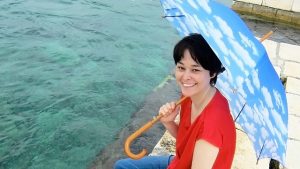
FitzGerald’s ‘Skylarking’ gave me the idea to make the piece about birds, as I believe the subject could create captivating audio. One species of bird, the Cornish chough, immediately occurred to me. I have a personal affinity to this member of the corvid family, as I was born and brought up in West Cornwall, where the chough was naturally recolonised. The chough is a symbol of Cornwall, and I soon realised the subject matter had real potential, as many people feel a strong connection to the bird.
I began researching references to the bird in culture, and found a number of poems and tales which were included in the final piece. These included “The Wreck” by R. S. Hawker and an extract from “Shadows In The Sky” which was eventually read by the author, Pete Cross.
After I had gathered enough material to pitch the project, I began researching potential commissioners. I found a number of potential contributors, such as the Cornish Culture Association. The Association states “We believe that Cornish Culture is the best way to bring the Cornish Community together regardless of ethnic origin, political beliefs, gender or any other factor. This makes our community stronger and more capable of dealing with the challenges of the 21st Century.” I contacted them for commission but unfortunately did not receive a response.
I also considered the Cornwall Bird Watching and Preservation Society, which was founded in 1931 and “liaises actively with national organisations such as the BTO, RSPB, Environment Agency, English Nature and the National Trust by advising on species and sites of importance as well as co-ordinating counts and surveys.” I seriously considered the Society as my commissioner, and later interviewed their President, Ian McCarthy for the project; but before I contacted them to pitch the idea, I discovered the Cornwall Chough Project, which is part of Action for Birds in England, a partnership between Natural England and the RSPB. This seemed like the perfect commissioner, as they are fundamental in the conservation of the birds. I contacted the Projects Officer, Claire Mucklow, and pitched the concept. Claire seemed immediately interested, and said she thought it was “A very exciting project to delve into… I have been managing the conservation based work behind the scenes to support the choughs since their magical return back in 2001… It’s been fascinating and quite a journey for a Cornish girl!” After a phone conversation, Claire gave me some very useful contacts which I used as interviewees. I later interviewed Claire about her involvement with the project. I was very pleased with her interview because she clearly showed her deep passion and love for the birds, showing strong emotions at the end of the discussion. After meeting Claire, she commissioned my piece in writing:
“Dear Gabriel,
The RSPB in Cornwall, as part of its chough conservation work would be delighted to commission a radio piece by you featuring a selection of interviews, stories and poetry describing the chough’s recolonisation, conservation and significance in literature, and its place in Cornish culture, both historically and now in the 21 century. If you could create this in a way that would mean we are able to use it in the future for educational purposes with the relevant permissions that would be appreciated.
Best wishes,
Claire”
As her brief requests for the project to be made “for educational purposes”, I thought carefully about the treatment of this piece. I felt that my initial concept of it being experimental in style contradicted this commission somewhat. After some consideration, I decided to produce the project closer to a something heard on BBC Radio 4, as I felt it offered a balance between the experimental style of BBC Radio 3’s “Between The Ears” and a more fact-based programme perhaps heard on local radio.
My commissioner was very pleased with the final piece of work, and commented “…it’s a fab piece of work, I loved it.”
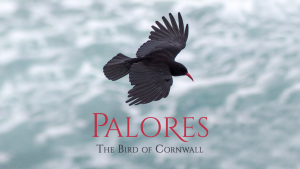
Research into the job market for work experience:
I had five years previous work experience before joining university, and was involved with community radio in many capacities including as a Presenter, Director and Head of Online. I also set up a school station and worked part-time for local commercial station Pirate FM as a member of their Street Team, and running educational workshops on their Media Bus. Additionally, I spent a day shadowing at both BBC Radio Devon and Heart South West respectively.
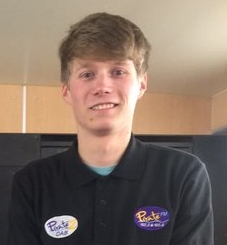
My previous experience in local radio gave me an insight into producing content with a local angle, which later helped me produce my individual audio project at university. My previous experience has also given me many contacts, one of which I contacted in relation to work experience over the summer.
Since joining university, I have had the opportunity to explore many working environments, such as Capital, BBC Radio 1, Vibe 107.6, Kiss FM, Magic, Virgin Radio and I now work for Heart Hertfordshire as Cover Breakfast Producer. I started at Heart as a member of the Street Team, which helped me build connections with the team. The current Breakfast Producer happened to have previously studied Radio Production at the University of Westminster.
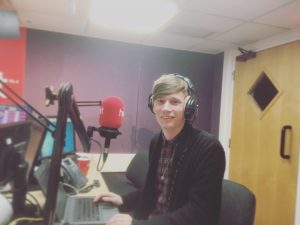
For this assignment, I will focus on my work experience over the summer at Coast FM in West Cornwall, where I had previously volunteered. I decided to return to the station for 10 weeks in the summer to improve my skills presenting in a commercial style and self-producing a micro-local programme. I contacted Dave Pascoe, a Director at the station, who allowed me to return. My programme proposal read:
“Programme type: Specialist
Primary audience: 18-39
Music type: Indie / mellow pop
Length: 2 hours
Ideal timeslot: Sunday evenings
Series length: 10 programmes
Synopsis: Long day? Gabriel Green has a great selection of relaxing indie and pop music to unwind to, before the start of the new week. Get comfy and turn on Coast Unwind, [insert day and time here].”
Coast Unwind was broadcast weekly on Sunday evenings. Previous to this programme, I had not tried presenting in a commercial style, and I found it quite a challenge to condense micro-local content into links no longer than 30 seconds. In the 10 weeks, I became better at planning and scripting my links so that they sounded smooth, a skill I had previously neglected somewhat.
I also produced the imaging for the show, which was voiced by my classmate, Mariola. The imaging had a mellow and indie/orchestral sound to complement the “Lite-AC” music format of the programme. I also wanted the imaging I produced to complement the lighter versions of the station’s imaging.
- What you learned from your work placement and what you learned from working with an external commissioner for Individual Audio Project.
My work placement gave me the opportunity to refine my skills as a presenter and taught me that although a highly commercial style of presenting might not be for me quite yet, I can still apply what I learnt to other contexts and styles of presenting. For example, I think my ability to talk to time has improved from doing the show, which is an extremely important skill for any form of music radio presenting. Additionally, my 10 weeks at Coast FM taught me how to script short commercial-style links, an extremely valuable skill for my future career. Producing the imaging for this programme was also a good learning experience because I had not made a “Lite AC” package before.
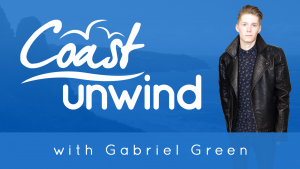
When working with an external commissioner for my Individual Audio Project, I learnt that communication was key. I believe I showed my passion for the subject matter, and I felt my commissioner recognised this and was therefore more interested in the project, and willing to help me. I also learnt that, depending on the context, your commissioner can be a great source of contacts. Claire was not only extremely willing to help, but also had information for many relevant people that I was able to use as contributors. This made me understand the importance of collaboration and teamwork, even when you are working individually on a project.
The ability to adapt your original concept to fulfil the commissioner’s brief is also important, as what I had in mind initially conflicted with what my commissioner had asked of me. Although this was a difficult obstacle at the time, I am happy with the final outcome and am happy I was able to fulfil what was asked of me.
- Where you hope to go next, what sort of career you are aiming for, drawing on your work experience and Individual Audio Project, and FIVE practical steps which you will follow to help you on the next phase, post-graduation.
Before joining the course, I only wanted to present, but my work experience at Coast FM taught me that I still need some more time and life experience before I come to that. I very much enjoyed the production side of the experience, such as creating the imaging and writing the scripts. This was also the case when producing my Individual Audio project; editing the piece together was, for me, the most rewarding part of the process. I love being creative and playing around with audio.
Currently, I have three potential areas I would love to work in post-graduation: radio producing, radio imaging and social media. I enjoy the creativity of producing radio imaging and social media content. I think radio producing combines some skills from both of these roles – audio and digital production, as well as studio-based skills. I would love to work in any of these positions at a national music station in London after graduating.
My 5-step plan is as follows:
- Continue working at Heart Hertfordshire, gaining contacts within Communicorp and Adventure Radio (owners).
- Actively looking and applying for appropriate roles at national music radio stations.
- Using my personal contacts to explore further opportunities.
- Entering schemes which help increase my recognition in the radio industry, such as the 30 Under 30.
- Exploring other industries where my skills in digital content production may be relevant and apply for any appropriate jobs advertised.